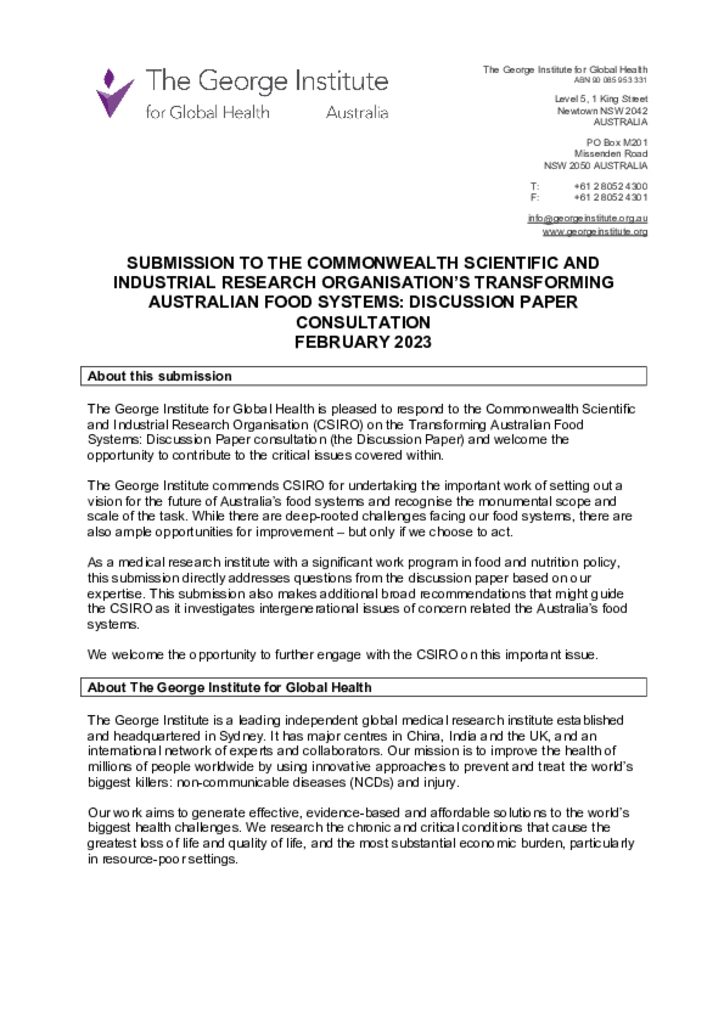
Submission to the CSIRO’s Transforming Australian Food Systems: Discussion paper consultation
The George Institute for Global Health is pleased to respond to the Commonwealth Scientific and Industrial Research Organisation (CSIRO) on the Transforming Australian Food Systems: Discussion Paper consultation (the Discussion Paper).
The George Institute commends the CSIRO for undertaking the important work of setting out a vision for the future of Australia’s food systems. While there are deep-rooted challenges facing our food systems, there are also ample opportunities for improvement.
Australia’s food systems are a major driver in some of the biggest intergenerational challenges our nation faces. Diet-related disease and overweight and obesity are two of the top three leading contributors to the burden of disease in Australia. Our food system is responsible for a significant proportion of total greenhouse gas emissions, has one of the highest greenhouse gas emission intensities amongst the largest food-producing nations in the world, and uses significant water and land resources.
All of these trends indicate the inextricable links between food systems, health and the environment, and require significant whole-of-system changes for related challenges to be met. While these are deep-rooted challenges, there is ample opportunity to redress them through a reimagining of the role and function of food systems in Australia. The good news is that these problems are already well-researched, and tangible, achievable and evidence-based solutions are already available. We simply need to act.
The George Institute’s submission has made several key recommendations, including:
- Respect and include Aboriginal and Torres Strait Islander peoples’ Knowledges in decision making
- Conduct further consultation with public health and consumer stakeholders on the direction of the Discussion
- Execute a new vision for 2025 that incorporates key concerns of public health and consumer group
- Include water in agenda setting for food systems
- Remove conflicts of interest in food systems regulation
- Review current indicators to better reflect problems associated with our current food systems and meaningful progress to a healthier, more environmentally sustainable future.



